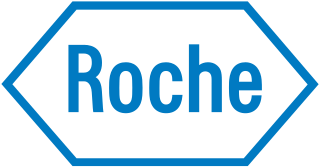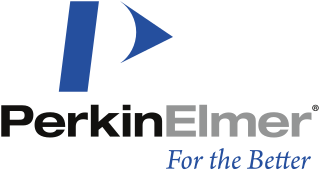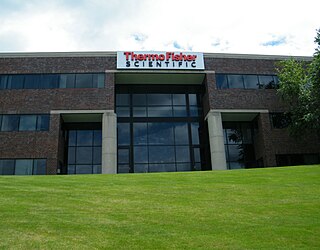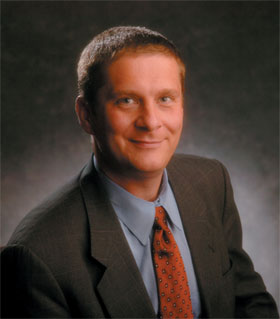
Virginia Commonwealth University (VCU) is a public research university in Richmond, Virginia. VCU was founded in 1838 as the medical department of Hampden–Sydney College, becoming the Medical College of Virginia in 1854. In 1968, the Virginia General Assembly merged MCV with the Richmond Professional Institute, founded in 1917, to create Virginia Commonwealth University. In 2022, more than 28,000 students pursued 217 degree and certificate programs through VCU's 11 schools and three colleges. The VCU Health System supports health care education, research, and patient care.
Abbott Laboratories is an American multinational medical devices and health care company with headquarters in Abbott Park, Illinois, United States. The company was founded by Chicago physician Wallace Calvin Abbott in 1888 to formulate known drugs; today, it sells medical devices, diagnostics, branded generic medicines and nutritional products. It split off its research-based pharmaceuticals business into AbbVie in 2013.


PerkinElmer, Inc., previously styled Perkin-Elmer, is an American global corporation that was founded in 1937 and originally focused on precision optics. Over the years it went into and out of several different businesses via acquisitions and divestitures; these included defense products, semiconductors, computer systems, and others. By the 21st century, PerkinElmer was focused in the business areas of diagnostics, life science research, food, environmental and industrial testing. Its capabilities include detection, imaging, informatics, and service. It produced analytical instruments, genetic testing and diagnostic tools, medical imaging components, software, instruments, and consumables for multiple end markets. PerkinElmer was part of the S&P 500 Index and operated in 190 countries.

Genome Valley is an Indian high-technology business district spread across 2,000-acre (8.1 km2)/(3.1 sq mi) in Hyderabad, India. It is located across the suburbs, Turakapally, Shamirpet, Medchal, Uppal, Patancheru, Jeedimetla, Gachibowli and Keesara. The Genome Valley has developed as a cluster for Biomedical research, training and manufacturing. Genome Valley is now into its Phase III, which is about 11 kms from the Phase I and II with the total area approximately 2,000-acre (8.1 km2).
Sheridan Gray Snyder OBE is an entrepreneur, venture capitalist, and philanthropist in the biotechnology industry. He is the founder and CEO of Biocatalyst, but also a "serial entrepreneur", a founder of Genzyme and many other companies.

Thermo Fisher Scientific Inc. is an American supplier of analytical instruments, life sciences solutions, specialty diagnostics, laboratory, pharmaceutical and biotechnology services. Based in Waltham, Massachusetts, Thermo Fisher was formed through the merger of Thermo Electron and Fisher Scientific in 2006. Thermo Fisher Scientific has acquired other reagent, consumable, instrumentation, and service providers, including Life Technologies Corporation (2013), Alfa Aesar (2015), Affymetrix (2016), FEI Company (2016), BD Advanced Bioprocessing (2018), and PPD (2021).
Randal J. Kirk is an American businessman and investor in pharmaceuticals and biotechnology. Kirk was the chairman and chief executive officer of Intrexon, a biotechnology company, until 2020. Kirk started as a lawyer, but is best known for his investments in pharmaceutical and biotech companies. In addition to high-profile sales of New River Pharmaceuticals, Inc., and Clinical Data, Inc, Kirk also founded investment firm Third Security, LLC, and has held board seats with biotech companies, such as Scios, Inc. He is a billionaire.

UF Innovate | Accelerate @ Sid Martin Biotech is located in Alachua, Florida, in Progress Park. The program's mission is to foster the growth of bioscience startup companies that have some relationship to the university. The Incubator works with companies in all product areas relating to the life sciences, biomedical research, medicine, and chemical sciences.
Gualberto Ruaño is a pioneer in the field of personalized medicine and the inventor of molecular diagnostic systems used worldwide for the management of viral diseases. Ruaño is President and Founder of Genomas, a genetics-related company and now the bio-tech anchor of Hartford Hospital’s Genetic Research Center; he also serves as Director of genetics research at the Center.
China has seen double-digit growth in its biotechnology industry and has gone from being one of the slowest to one of the fastest nations in the adoption of new biotechnologies. The biotech sector is seen in China and internationally as a core area of national scientific and economic development. The main national biotech body in the country is the China National Center for Biotechnology Development. The CNCBD is an organization established on November 3, 1983, under the Ministry of Science and Technology with the approval of the State Council. CNCBD is the sole national center to coordinate and implement the national S&T program in Biotechnology and Health.

The Medical College of Virginia/Virginia Commonwealth University School of Medicine is the medical school of Virginia Commonwealth University, a public research university in Richmond, Virginia. It is the largest and oldest continuously operating medical school in Virginia. The school traces its beginnings to the 1838 opening of the medical department of Hampden–Sydney College, which in 1854 became an independent institution known as the Medical College of Virginia (MCV). In 1968, MCV joined with the Richmond Professional Institute to form Virginia Commonwealth University. The School of Medicine is one of five schools within the VCU Medical Center and Children's Hospital of Richmond at VCU.

The VCU Medical Center is Virginia Commonwealth University's medical campus located in downtown Richmond, Virginia, in the Court End neighborhood. VCU Medical Center used to be known as the Medical College of Virginia (MCV), which merged with the Richmond Professional Institute in 1968 to create Virginia Commonwealth University. In the 1990s, the Medical College of Virginia Hospitals Authority was created to oversee MCV Hospitals. In 2004, the name of this authority was changed to the VCU Health System, and the MCV Hospitals and surrounding campus were named the VCU Medical Center. The authority oversees the employees and real estate occupied by the five schools within the VCU Medical Center. It was at this time that the MCV Campus moniker was created.

The Ohio bioscience sector strength was ranked #4 among USA states in 2008 by Business Facilities magazine.
The Virginia Commonwealth University College of Health Professions, formerly known as the School of Allied Health Professions, is a school of health professions located in the United States city of Richmond. The school is part of Virginia Commonwealth University and is located on VCU's MCV Campus. It is one of only 116 member institutions in the Association of Schools of Allied Health Professions in the U.S.

Timothy J. Broderick, F.A.C.S., is Professor of Surgery and Biomedical Engineering at the University of Cincinnati, where he has served on the faculty since 2003. He also serves as Chief of the Division of Gastrointestinal and Endocrine Surgery and is Director of the Advanced Center for Telemedicine and Surgical Innovation (ACTSI). He has flown on the NASA KC-135 parabolic laboratory and dived in the NASA Extreme Environment Mission Operations (NEEMO) program to develop advanced surgical technologies for long duration space flight.
BioMotiv is an accelerator company associated with The Harrington Project, an initiative centered at University Hospitals of Cleveland. Therapeutic opportunities were identified through relationships with The Harrington Discovery Institute, university and research institutions, disease foundations, and industry sources. Once opportunities are identified, BioMotiv oversees the development, funding, active management, and partnering of the therapeutic products.
The Chronic Effects of Neurotrauma Consortium (CENC) is a federally funded research project devised to address the long-term effects of mild traumatic brain injury in military service personnel (SMs) and Veterans. Announced by President Barack Obama on August 20, 2013, the CENC was one of two major initiatives developed in response to the injuries incurred by U.S. service personnel during Operation Enduring Freedom and Operation Iraqi Freedom. The project is jointly funded in the amount of $62.175 million by the Department of Defense (DoD) and the Department of Veterans Affairs (VA). The CENC is led by Dr. David X. Cifu of the Virginia Commonwealth University.
Translational Health Science and Technology Institute (THSTI) is a society registered under the Societies Registration Act XXI of 1860. It is also an autonomous institute of the Department of Biotechnology, Ministry of Science and Technology, Government of India. It was set up in 2009 at Gurgaon and is now located in NCR Biotech Science Cluster, Faridabad along with the Regional Center for Biotechnology, Advanced Technology Platforms Center, Small Animal Facility, and Bio-incubator. Envisioned by former secretary of DBT, M. K. Bhan, the centre was created to enable faster transition of lab research to market. Pramod Garg is the executive director of THSTI.









